Market Overview
The global Hydronic Systems market size is expected to gain market growth in the forecast period of 2020 to 2025, with a CAGR of xx% in the forecast period of 2020 to 2025 and will expected to reach USD xx million by 2025, from USD xx million in 2019.
The Hydronic Systems market report provides a detailed analysis of global market size, regional and country-level market size, segmentation market growth, market share, competitive Landscape, sales analysis, impact of domestic and global market players, value chain optimization, trade regulations, recent developments, opportunities analysis, strategic market growth analysis, product launches, area marketplace expanding, and technological innovations.
Market segmentation
Hydronic Systems market is split by Type and by Application. For the period 2015-2025, the growth among segments provide accurate calculations and forecasts for sales by Type and by Application in terms of volume and value. This analysis can help you expand your business by targeting qualified niche markets.
By Type, Hydronic Systems market has been segmented into:
Heating Technology
Cooling Technology
Others
By Application, Hydronic Systems has been segmented into:
Residential
Non-residential
Regions and Countries Level Analysis
Regional analysis is another highly comprehensive part of the research and analysis study of the global Hydronic Systems market presented in the report. This section sheds light on the sales growth of different regional and country-level Hydronic Systems markets. For the historical and forecast period 2015 to 2025, it provides detailed and accurate country-wise volume analysis and region-wise market size analysis of the global Hydronic Systems market.
The report offers in-depth assessment of the growth and other aspects of the Hydronic Systems market in important countries (regions), including:
North America (United States, Canada and Mexico)
Europe (Germany, France, UK, Russia and Italy)
Asia-Pacific (China, Japan, Korea, India, Southeast Asia and Australia)
South America (Brazil, Argentina, Colombia)
Middle East and Africa (Saudi Arabia, UAE, Egypt, Nigeria and South Africa)
Competitive Landscape and Hydronic Systems Market Share Analysis
Hydronic Systems competitive landscape provides details by vendors, including company overview, company total revenue (financials), market potential, global presence, Hydronic Systems sales and revenue generated, market share, price, production sites and facilities, SWOT analysis, product launch. For the period 2015-2020, this study provides the Hydronic Systems sales, revenue and market share for each player covered in this report.
The major players covered in Hydronic Systems are:
Bindus Manufacturing
Danfoss
Schneider Electric
Johnson Controls
Oventrop
Rehau
RiFeng
Watts Water Technologies
Uponor
Wieland
Table of Contents
1 Hydronic Systems Market Overview
1.1 Product Overview and Scope of Hydronic Systems
1.2 Classification of Hydronic Systems by Type
1.2.1 Global Hydronic Systems Revenue by Type: 2015 VS 2019 VS 2025
1.2.2 Global Hydronic Systems Revenue Market Share by Type in 2019
1.2.3 Heating Technology
1.2.4 Cooling Technology
1.2.5 Others
1.3 Global Hydronic Systems Market by Application
1.3.1 Overview: Global Hydronic Systems Revenue by Application: 2015 VS 2019 VS 2025
1.3.2 Residential
1.3.3 Non-residential
1.4 Global Hydronic Systems Market by Regions
1.4.1 Global Hydronic Systems Market Size by Regions: 2015 VS 2019 VS 2025
1.4.2 Global Market Size of Hydronic Systems (2015-2025)
1.4.3 North America (USA, Canada and Mexico) Hydronic Systems Status and Prospect (2015-2025)
1.4.4 Europe (Germany, France, UK, Russia and Italy) Hydronic Systems Status and Prospect (2015-2025)
1.4.5 Asia-Pacific (China, Japan, Korea, India and Southeast Asia) Hydronic Systems Status and Prospect (2015-2025)
1.4.6 South America (Brazil, Argentina, Colombia) Hydronic Systems Status and Prospect (2015-2025)
1.4.7 Middle East & Africa (Saudi Arabia, UAE, Egypt, Nigeria and South Africa) Hydronic Systems Status and Prospect (2015-2025)
2 Company Profiles
2.1 Bindus Manufacturing
2.1.1 Bindus Manufacturing Details
2.1.2 Bindus Manufacturing Major Business and Total Revenue (Financial Highlights) Analysis
2.1.3 Bindus Manufacturing SWOT Analysis
2.1.4 Bindus Manufacturing Product and Services
2.1.5 Bindus Manufacturing Hydronic Systems Revenue, Gross Margin and Market Share (2018-2019)
2.2 Danfoss
2.2.1 Danfoss Details
2.2.2 Danfoss Major Business and Total Revenue (Financial Highlights) Analysis
2.2.3 Danfoss SWOT Analysis
2.2.4 Danfoss Product and Services
2.2.5 Danfoss Hydronic Systems Revenue, Gross Margin and Market Share (2018-2019)
2.3 Schneider Electric
2.3.1 Schneider Electric Details
2.3.2 Schneider Electric Major Business and Total Revenue (Financial Highlights) Analysis
2.3.3 Schneider Electric SWOT Analysis
2.3.4 Schneider Electric Product and Services
2.3.5 Schneider Electric Hydronic Systems Revenue, Gross Margin and Market Share (2018-2019)
2.4 Johnson Controls
2.4.1 Johnson Controls Details
2.4.2 Johnson Controls Major Business and Total Revenue (Financial Highlights) Analysis
2.4.3 Johnson Controls SWOT Analysis
2.4.4 Johnson Controls Product and Services
2.4.5 Johnson Controls Hydronic Systems Revenue, Gross Margin and Market Share (2018-2019)
2.5 Oventrop
2.5.1 Oventrop Details
2.5.2 Oventrop Major Business and Total Revenue (Financial Highlights) Analysis
2.5.3 Oventrop SWOT Analysis
2.5.4 Oventrop Product and Services
2.5.5 Oventrop Hydronic Systems Revenue, Gross Margin and Market Share (2018-2019)
2.6 Rehau
2.6.1 Rehau Details
2.6.2 Rehau Major Business and Total Revenue (Financial Highlights) Analysis
2.6.3 Rehau SWOT Analysis
2.6.4 Rehau Product and Services
2.6.5 Rehau Hydronic Systems Revenue, Gross Margin and Market Share (2018-2019)
2.7 RiFeng
2.7.1 RiFeng Details
2.7.2 RiFeng Major Business and Total Revenue (Financial Highlights) Analysis
2.7.3 RiFeng SWOT Analysis
2.7.4 RiFeng Product and Services
2.7.5 RiFeng Hydronic Systems Revenue, Gross Margin and Market Share (2018-2019)
2.8 Watts Water Technologies
2.8.1 Watts Water Technologies Details
2.8.2 Watts Water Technologies Major Business and Total Revenue (Financial Highlights) Analysis
2.8.3 Watts Water Technologies SWOT Analysis
2.8.4 Watts Water Technologies Product and Services
2.8.5 Watts Water Technologies Hydronic Systems Revenue, Gross Margin and Market Share (2018-2019)
2.9 Uponor
2.9.1 Uponor Details
2.9.2 Uponor Major Business and Total Revenue (Financial Highlights) Analysis
2.9.3 Uponor SWOT Analysis
2.9.4 Uponor Product and Services
2.9.5 Uponor Hydronic Systems Revenue, Gross Margin and Market Share (2018-2019)
2.10 Wieland
2.10.1 Wieland Details
2.10.2 Wieland Major Business and Total Revenue (Financial Highlights) Analysis
2.10.3 Wieland SWOT Analysis
2.10.4 Wieland Product and Services
2.10.5 Wieland Hydronic Systems Revenue, Gross Margin and Market Share (2018-2019)
3 Market Competition, by Players
3.1 Global Hydronic Systems Revenue and Share by Players (2015-2020)
3.2 Market Concentration Rate
3.2.1 Top 5 Hydronic Systems Players Market Share
3.2.2 Top 10 Hydronic Systems Players Market Share
3.3 Market Competition Trend
4 Market Size by Regions
4.1 Global Hydronic Systems Revenue and Market Share by Regions
4.2 North America Hydronic Systems Revenue and Growth Rate (2015-2020)
4.3 Europe Hydronic Systems Revenue and Growth Rate (2015-2020)
4.4 Asia-Pacific Hydronic Systems Revenue and Growth Rate (2015-2020)
4.5 South America Hydronic Systems Revenue and Growth Rate (2015-2020)
4.6 Middle East & Africa Hydronic Systems Revenue and Growth Rate (2015-2020)
5 North America Hydronic Systems Revenue by Countries
5.1 North America Hydronic Systems Revenue by Countries (2015-2020)
5.2 USA Hydronic Systems Revenue and Growth Rate (2015-2020)
5.3 Canada Hydronic Systems Revenue and Growth Rate (2015-2020)
5.4 Mexico Hydronic Systems Revenue and Growth Rate (2015-2020)
6 Europe Hydronic Systems Revenue by Countries
6.1 Europe Hydronic Systems Revenue by Countries (2015-2020)
6.2 Germany Hydronic Systems Revenue and Growth Rate (2015-2020)
6.3 UK Hydronic Systems Revenue and Growth Rate (2015-2020)
6.4 France Hydronic Systems Revenue and Growth Rate (2015-2020)
6.5 Russia Hydronic Systems Revenue and Growth Rate (2015-2020)
6.6 Italy Hydronic Systems Revenue and Growth Rate (2015-2020)
7 Asia-Pacific Hydronic Systems Revenue by Countries
7.1 Asia-Pacific Hydronic Systems Revenue by Countries (2015-2020)
7.2 China Hydronic Systems Revenue and Growth Rate (2015-2020)
7.3 Japan Hydronic Systems Revenue and Growth Rate (2015-2020)
7.4 Korea Hydronic Systems Revenue and Growth Rate (2015-2020)
7.5 India Hydronic Systems Revenue and Growth Rate (2015-2020)
7.6 Southeast Asia Hydronic Systems Revenue and Growth Rate (2015-2020)
8 South America Hydronic Systems Revenue by Countries
8.1 South America Hydronic Systems Revenue by Countries (2015-2020)
8.2 Brazil Hydronic Systems Revenue and Growth Rate (2015-2020)
8.3 Argentina Hydronic Systems Revenue and Growth Rate (2015-2020)
9 Middle East & Africa Revenue Hydronic Systems by Countries
9.1 Middle East & Africa Hydronic Systems Revenue by Countries (2015-2020)
9.2 Saudi Arabia Hydronic Systems Revenue and Growth Rate (2015-2020)
9.3 UAE Hydronic Systems Revenue and Growth Rate (2015-2020)
9.4 Egypt Hydronic Systems Revenue and Growth Rate (2015-2020)
9.5 South Africa Hydronic Systems Revenue and Growth Rate (2015-2020)
10 Market Size Segment by Type
10.1 Global Hydronic Systems Revenue and Market Share by Type (2015-2020)
10.2 Global Hydronic Systems Market Forecast by Type (2019-2024)
10.3 Heating Technology Revenue Growth Rate (2015-2025)
10.4 Cooling Technology Revenue Growth Rate (2015-2025)
10.5 Others Revenue Growth Rate (2015-2025)
11 Global Hydronic Systems Market Segment by Application
11.1 Global Hydronic Systems Revenue Market Share by Application (2015-2020)
11.2 Hydronic Systems Market Forecast by Application (2019-2024)
11.3 Residential Revenue Growth (2015-2020)
11.4 Non-residential Revenue Growth (2015-2020)
12 Global Hydronic Systems Market Size Forecast (2021-2025)
12.1 Global Hydronic Systems Market Size Forecast (2021-2025)
12.2 Global Hydronic Systems Market Forecast by Regions (2021-2025)
12.3 North America Hydronic Systems Revenue Market Forecast (2021-2025)
12.4 Europe Hydronic Systems Revenue Market Forecast (2021-2025)
12.5 Asia-Pacific Hydronic Systems Revenue Market Forecast (2021-2025)
12.6 South America Hydronic Systems Revenue Market Forecast (2021-2025)
12.7 Middle East & Africa Hydronic Systems Revenue Market Forecast (2021-2025)
13 Research Findings and Conclusion
14 Appendix
14.1 Methodology
14.2 Data Source
14.3 Disclaimer
14.4 About US
List of Tables
Table 1. Global Hydronic Systems Revenue (USD Million) by Type: 2015 VS 2019 VS 2025
Table 2. Breakdown of Hydronic Systems by Company Type (Tier 1, Tier 2 and Tier 3)
Table 3. Global Hydronic Systems Revenue (USD Million) by Application: 2015 VS 2019 VS 2025
Table 4. Global Market Hydronic Systems Revenue (Million USD) Comparison by Regions 2015-2025
Table 5. Bindus Manufacturing Corporate Information, Location and Competitors
Table 6. Bindus Manufacturing Hydronic Systems Major Business
Table 7. Bindus Manufacturing Hydronic Systems Total Revenue (USD Million) (2017-2018)
Table 8. Bindus Manufacturing SWOT Analysis
Table 9. Bindus Manufacturing Hydronic Systems Product and Solutions
Table 10. Bindus Manufacturing Hydronic Systems Revenue (USD Million), Gross Margin and Market Share (2018-2019)
Table 11. Danfoss Corporate Information, Location and Competitors
Table 12. Danfoss Hydronic Systems Major Business
Table 13. Danfoss Hydronic Systems Total Revenue (USD Million) (2018-2019)
Table 14. Danfoss SWOT Analysis
Table 15. Danfoss Hydronic Systems Product and Solutions
Table 16. Danfoss Hydronic Systems Revenue (USD Million), Gross Margin and Market Share (2018-2019)
Table 17. Schneider Electric Corporate Information, Location and Competitors
Table 18. Schneider Electric Hydronic Systems Major Business
Table 19. Schneider Electric Hydronic Systems Total Revenue (USD Million) (2017-2018)
Table 20. Schneider Electric SWOT Analysis
Table 21. Schneider Electric Hydronic Systems Product and Solutions
Table 22. Schneider Electric Hydronic Systems Revenue (USD Million), Gross Margin and Market Share (2018-2019)
Table 23. Johnson Controls Corporate Information, Location and Competitors
Table 24. Johnson Controls Hydronic Systems Major Business
Table 25. Johnson Controls Hydronic Systems Total Revenue (USD Million) (2017-2018)
Table 26. Johnson Controls SWOT Analysis
Table 27. Johnson Controls Hydronic Systems Product and Solutions
Table 28. Johnson Controls Hydronic Systems Revenue (USD Million), Gross Margin and Market Share (2018-2019)
Table 29. Oventrop Corporate Information, Location and Competitors
Table 30. Oventrop Hydronic Systems Major Business
Table 31. Oventrop Hydronic Systems Total Revenue (USD Million) (2017-2018)
Table 32. Oventrop SWOT Analysis
Table 33. Oventrop Hydronic Systems Product and Solutions
Table 34. Oventrop Hydronic Systems Revenue (USD Million), Gross Margin and Market Share (2018-2019)
Table 35. Rehau Corporate Information, Location and Competitors
Table 36. Rehau Hydronic Systems Major Business
Table 37. Rehau Hydronic Systems Total Revenue (USD Million) (2017-2018)
Table 38. Rehau SWOT Analysis
Table 39. Rehau Hydronic Systems Product and Solutions
Table 40. Rehau Hydronic Systems Revenue (USD Million), Gross Margin and Market Share (2018-2019)
Table 41. RiFeng Corporate Information, Location and Competitors
Table 42. RiFeng Hydronic Systems Major Business
Table 43. RiFeng Hydronic Systems Total Revenue (USD Million) (2017-2018)
Table 44. RiFeng SWOT Analysis
Table 45. RiFeng Hydronic Systems Product and Solutions
Table 46. RiFeng Hydronic Systems Revenue (USD Million), Gross Margin and Market Share (2018-2019)
Table 47. Watts Water Technologies Corporate Information, Location and Competitors
Table 48. Watts Water Technologies Hydronic Systems Major Business
Table 49. Watts Water Technologies Hydronic Systems Total Revenue (USD Million) (2017-2018)
Table 50. Watts Water Technologies SWOT Analysis
Table 51. Watts Water Technologies Hydronic Systems Product and Solutions
Table 52. Watts Water Technologies Hydronic Systems Revenue (USD Million), Gross Margin and Market Share (2018-2019)
Table 53. Uponor Corporate Information, Location and Competitors
Table 54. Uponor Hydronic Systems Major Business
Table 55. Uponor Hydronic Systems Total Revenue (USD Million) (2017-2018)
Table 56. Uponor SWOT Analysis
Table 57. Uponor Hydronic Systems Product and Solutions
Table 58. Uponor Hydronic Systems Revenue (USD Million), Gross Margin and Market Share (2018-2019)
Table 59. Wieland Corporate Information, Location and Competitors
Table 60. Wieland Hydronic Systems Major Business
Table 61. Wieland Hydronic Systems Total Revenue (USD Million) (2017-2018)
Table 62. Wieland SWOT Analysis
Table 63. Wieland Hydronic Systems Product and Solutions
Table 64. Wieland Hydronic Systems Revenue (USD Million), Gross Margin and Market Share (2018-2019)
Table 65. Global Hydronic Systems Revenue (Million USD) by Players (2015-2020)
Table 66. Global Hydronic Systems Revenue Share by Players (2015-2020)
Table 67. Global Hydronic Systems Revenue (Million USD) by Regions (2015-2020)
Table 68. Global Hydronic Systems Revenue Market Share by Regions (2015-2020)
Table 69. North America Hydronic Systems Revenue by Countries (2015-2020)
Table 70. North America Hydronic Systems Revenue Market Share by Countries (2015-2020)
Table 71. Europe Hydronic Systems Revenue (Million USD) by Countries (2015-2020)
Table 72. Asia-Pacific Hydronic Systems Revenue (Million USD) by Countries (2015-2020)
Table 73. South America Hydronic Systems Revenue by Countries (2015-2020)
Table 74. South America Hydronic Systems Revenue Market Share by Countries (2015-2020)
Table 75. Middle East and Africa Hydronic Systems Revenue (Million USD) by Countries (2015-2020)
Table 76. Middle East and Africa Hydronic Systems Revenue Market Share by Countries (2015-2020)
Table 77. Global Hydronic Systems Revenue (Million USD) by Type (2015-2020)
Table 78. Global Hydronic Systems Revenue Share by Type (2015-2020)
Table 79. Global Hydronic Systems Revenue Forecast by Type (2021-2025)
Table 80. Global Hydronic Systems Revenue by Application (2015-2020)
Table 81. Global Hydronic Systems Revenue Share by Application (2015-2020)
Table 82. Global Hydronic Systems Revenue Forecast by Application (2021-2025)
Table 83. Global Hydronic Systems Revenue (Million USD) Forecast by Regions (2021-2025)
List of Figures
Figure 1. Hydronic Systems Picture
Figure 2. Global Hydronic Systems Revenue Market Share by Type in 2019
Figure 3. Heating Technology Picture
Figure 4. Cooling Technology Picture
Figure 5. Others Picture
Figure 6. Hydronic Systems Revenue Market Share by Application in 2019
Figure 7. Residential Picture
Figure 8. Non-residential Picture
Figure 9. Global Hydronic Systems Revenue (USD Million) and Growth Rate (2015-2025)
Figure 10. North America Hydronic Systems Revenue (Million USD) and Growth Rate (2015-2025)
Figure 11. Europe Hydronic Systems Revenue (Million USD) and Growth Rate (2015-2025)
Figure 12. Asia-Pacific Hydronic Systems Revenue (Million USD) and Growth Rate (2015-2025)
Figure 13. South America Hydronic Systems Revenue (Million USD) and Growth Rate (2015-2025)
Figure 14. Middle East and Africa Hydronic Systems Revenue (Million USD) and Growth Rate (2015-2025)
Figure 15. Global Hydronic Systems Revenue (Million USD) and Growth Rate (2015-2025)
Figure 16. Global Hydronic Systems Revenue Share by Players in 2019
Figure 17. Global Top 5 Players Hydronic Systems Revenue Market Share in 2019
Figure 18. Global Top 10 Players Hydronic Systems Revenue Market Share in 2019
Figure 19. Key Players Market Share Trend
Figure 20. Global Hydronic Systems Revenue (Million USD) and Growth Rate (%) (2015-2020)
Figure 21. Global Hydronic Systems Revenue Market Share by Regions (2015-2020)
Figure 22. Global Hydronic Systems Revenue Market Share by Regions in 2018
Figure 23. North America Hydronic Systems Revenue and Growth Rate (2015-2020)
Figure 24. Europe Hydronic Systems Revenue and Growth Rate (2015-2020)
Figure 25. Asia-Pacific Hydronic Systems Revenue and Growth Rate (2015-2020)
Figure 26. South America Hydronic Systems Revenue and Growth Rate (2015-2020)
Figure 27. Middle East and Africa Hydronic Systems Revenue and Growth Rate (2015-2020)
Figure 28. North America Hydronic Systems Revenue Market Share by Countries (2015-2020)
Figure 29. North America Hydronic Systems Revenue Market Share by Countries in 2019
Figure 30. USA Hydronic Systems Revenue and Growth Rate (2015-2020)
Figure 31. Canada Hydronic Systems Revenue and Growth Rate (2015-2020)
Figure 32. Mexico Hydronic Systems Revenue and Growth Rate (2015-2020)
Figure 33. Europe Hydronic Systems Revenue Market Share by Countries (2015-2020)
Figure 34. Europe Hydronic Systems Revenue Market Share by Countries in 2019
Figure 35. Germany Hydronic Systems Revenue and Growth Rate (2015-2020)
Figure 36. UK Hydronic Systems Revenue and Growth Rate (2015-2020)
Figure 37. France Hydronic Systems Revenue and Growth Rate (2015-2020)
Figure 38. Russia Hydronic Systems Revenue and Growth Rate (2015-2020)
Figure 39. Italy Hydronic Systems Revenue and Growth Rate (2015-2020)
Figure 40. Asia-Pacific Hydronic Systems Revenue Market Share by Countries (2015-2020)
Figure 41. Asia-Pacific Hydronic Systems Revenue Market Share by Countries in 2019
Figure 42. China Hydronic Systems Revenue and Growth Rate (2015-2020)
Figure 43. Japan Hydronic Systems Revenue and Growth Rate (2015-2020)
Figure 44. Korea Hydronic Systems Revenue and Growth Rate (2015-2020)
Figure 45. India Hydronic Systems Revenue and Growth Rate (2015-2020)
Figure 46. Southeast Asia Hydronic Systems Revenue and Growth Rate (2015-2020)
Figure 47. South America Hydronic Systems Revenue Market Share by Countries (2015-2020)
Figure 48. South America Hydronic Systems Revenue Market Share by Countries in 2019
Figure 49. Brazil Hydronic Systems Revenue and Growth Rate (2015-2020)
Figure 50. Argentina Hydronic Systems Revenue and Growth Rate (2015-2020)
Figure 51. Middle East and Africa Hydronic Systems Revenue Market Share by Countries (2015-2020)
Figure 52. Middle East and Africa Hydronic Systems Revenue Market Share by Countries in 2019
Figure 53. Saudi Arabia Hydronic Systems Revenue and Growth Rate (2015-2020)
Figure 54. UAE Hydronic Systems Revenue and Growth Rate (2015-2020)
Figure 55. Egypt Hydronic Systems Revenue and Growth Rate (2015-2020)
Figure 56. South Africa Hydronic Systems Revenue and Growth Rate (2015-2020)
Figure 57. Global Hydronic Systems Revenue Share by Type (2015-2020)
Figure 58. Global Hydronic Systems Revenue Share by Type in 2019
Figure 59. Global Hydronic Systems Market Share Forecast by Type (2021-2025)
Figure 60. Global Heating Technology Revenue Growth Rate (2015-2020)
Figure 61. Global Cooling Technology Revenue Growth Rate (2015-2020)
Figure 62. Global Others Revenue Growth Rate (2015-2020)
Figure 63. Global Hydronic Systems Revenue Share by Application (2015-2020)
Figure 64. Global Hydronic Systems Revenue Share by Application in 2019
Figure 65. Global Hydronic Systems Market Share Forecast by Application (2021-2025)
Figure 66. Global Residential Revenue Growth Rate (2015-2020)
Figure 67. Global Non-residential Revenue Growth Rate (2015-2020)
Figure 68. Global Hydronic Systems Revenue (Million USD) and Growth Rate Forecast (2021-2025)
Figure 69. Global Hydronic Systems Revenue (Million USD) Forecast by Regions (2021-2025)
Figure 70. Global Hydronic Systems Revenue Market Share Forecast by Regions (2021-2025)
Figure 71. North America Hydronic Systems Revenue Market Forecast (2021-2025)
Figure 72. Europe Hydronic Systems Revenue Market Forecast (2021-2025)
Figure 73. Asia-Pacific Hydronic Systems Revenue Market Forecast (2021-2025)
Figure 74. South America Hydronic Systems Revenue Market Forecast (2021-2025)
Figure 75. Middle East and Africa Hydronic Systems Revenue Market Forecast (2021-2025)
Figure 76. Sales Channel: Direct Channel vs Indirect Channel
Market research is a method of gathering, assessing and deducing data & information about a particular market. Market research is very crucial in these days. The techniques analyze about how a product/service can be offered to the market to its end-customers, observe the impact of that product/service based on the past customer experiences, and cater their needs and demands. Owing to the successful business ventures, accurate, relevant and thorough information is the base for all the organizations because market research report/study offers specific market related data & information about the industry growth prospects, perspective of the existing customers, and the overall market scenario prevailed in past, ongoing present and developing future. It allows the stakeholders and investors to determine the probability of a business before committing substantial resources to the venture. Market research helps in solving the marketing issues challenges that a business will most likely face.
Market research is valuable because of the following reasons:
Our research report features both the aspects; qualitative and quantitative. Qualitative part provides insights about the market driving forces, potential opportunities, customer’s demands and requirement which in turn help the companies to come up with new strategies in order to survive in the long run competition. The quantitative segment offers the most credible information related to the industry. Based on the data gathering, we use to derive the market size and estimate their future growth prospects on the basis of global, region and country.
Our market research process involves with the four specific stages.
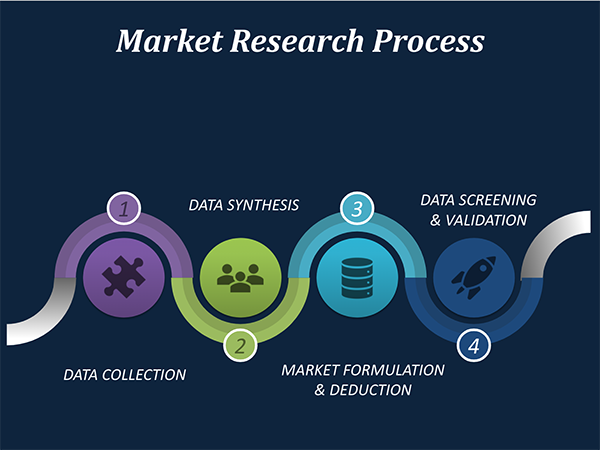
Data Collection: This stage of the market research process involves with the gathering and collecting of the market/industry related data from the sources. There are basically two types of research methods:
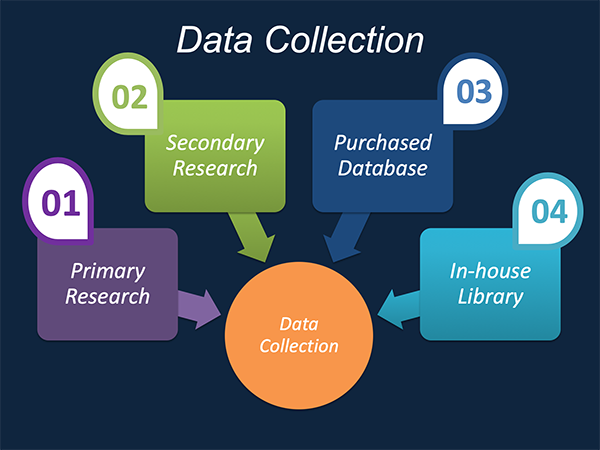
Data Synthesis: This stage includes the evaluation and assessment of all the data acquired from the primary and secondary research. It likewise includes in evaluating the information for any disparity watched while information gathering identified with the market. The data & information is gathered with consideration to the heterogeneity of sources. Scientific and statistical methods are implemented for synthesizing dissimilar information sets and provide the relevant data which is fundamental for formulating strategies. Our organization has broad involvement with information amalgamation where the information goes through different stages:
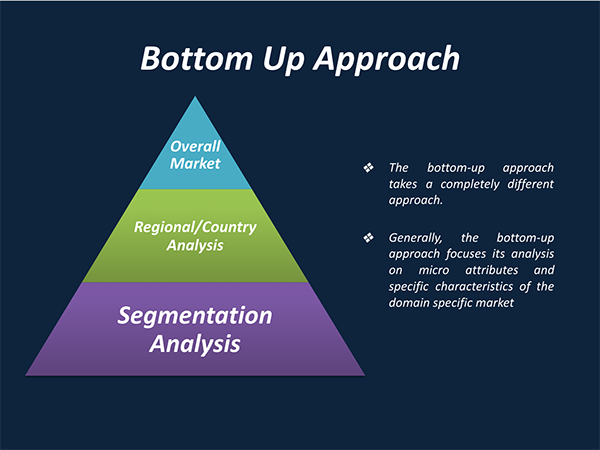
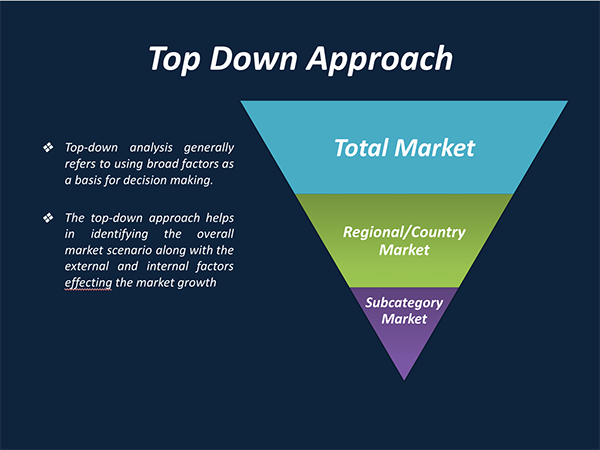
Market Formulation & Deduction: The last stage includes assigning the data & information in a suitable way in order to derive market size. Analyst reviews and domain based opinions based on holistic approach of market estimation combined with industry investigation additionally features a crucial role in this stage.
This stage includes with the finalization of the market size and numbers that we have gathered from primary and secondary research. With the data & information addition, we ensure that there is no gap in the market information. Market trend analysis is finished by our analysts by utilizing data extrapolation procedures, which give the most ideal figures to the market.
Data Validation: Validation is the most crucial step in the process. Validation & re-validation through scientifically designed technique and process that helps us finalize data-points to be used for final calculations. This stage also involves with the data triangulation process. Data triangulation generally implicates the cross validation and matching the data which has been collected from primary and secondary research methods.
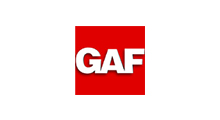

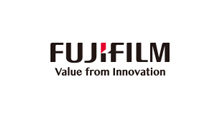
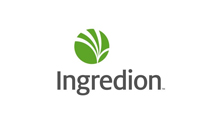



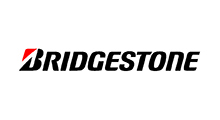
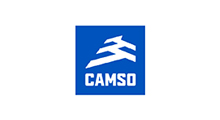
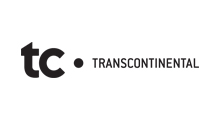

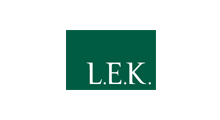


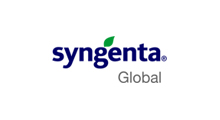



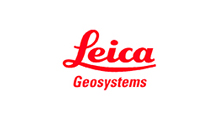
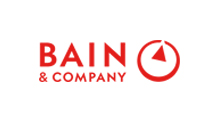


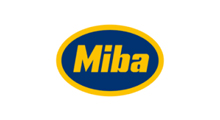
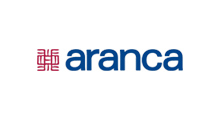


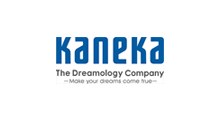





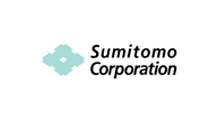


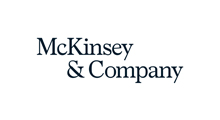


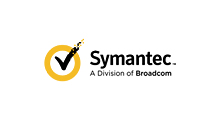
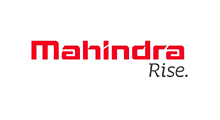
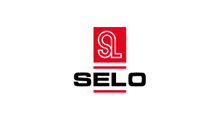
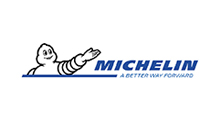



Free Customization
Countries can be added on demand
Free yearly update on purchase of Multi/Corporate User License
Companies served till date

We serve our customers 24x7 for 365 days through calls, emails and live chat options.

Huge database of exceptional market reports bringing market intelligence to your fingertips.

SSL enabled, we offer you various secured payment options for risk free purchase.